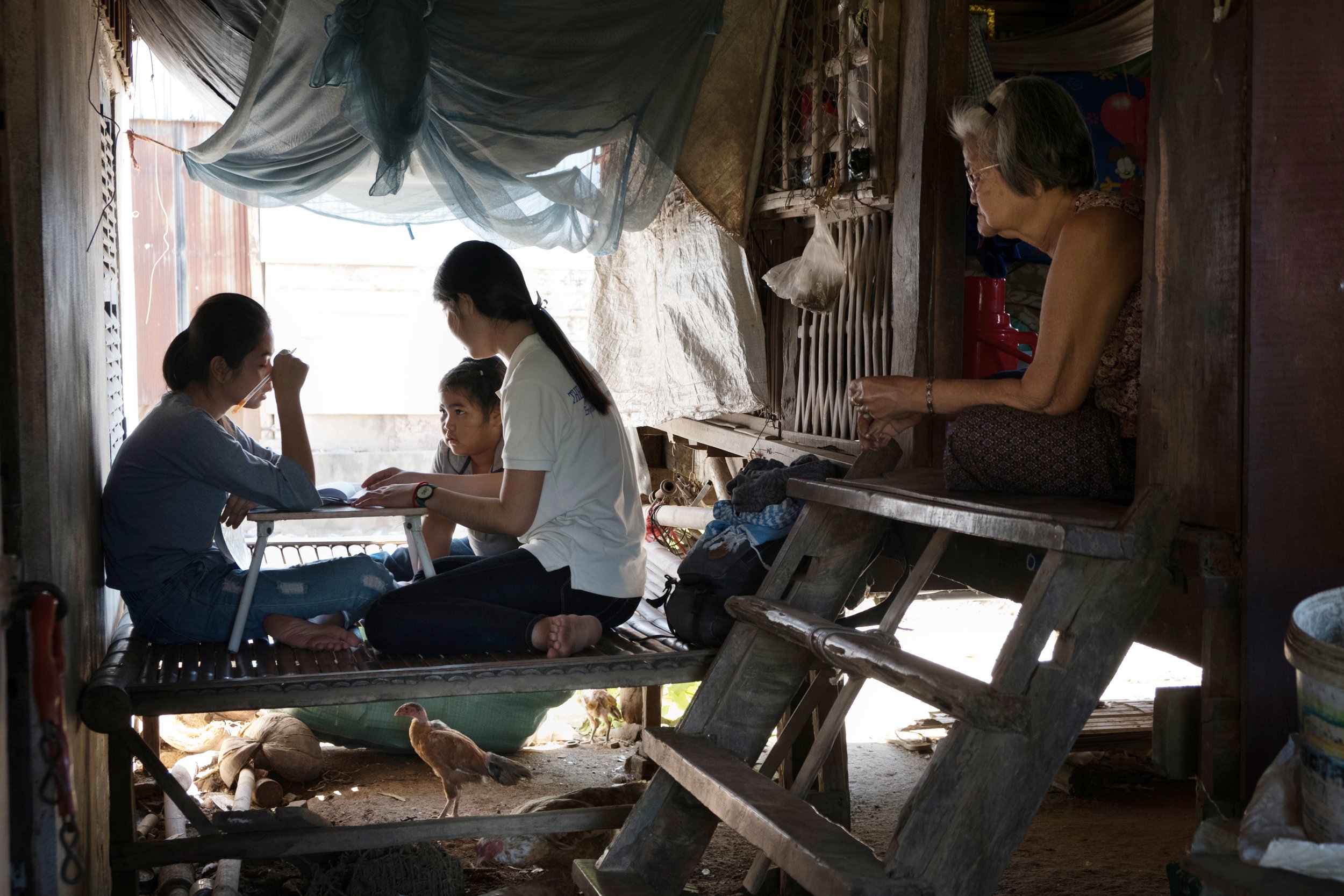Impact Metrics

In Cambodia, almost three times the number of women (34%) have no formal schooling, and half the number of women (18%) have completed upper secondary school or higher compared to men.
As a result, they have fewer economic and leadership opportunities and little voice in the social and political systems that shape their lives.
Just 16% of senior government positions are held by women, 21.6% of parliamentarians are female and 14% of the judiciary is female.
As Harpswell works to change these realities of inequality and inequity—for Harpswell graduates to someday become leaders of their countries, closely connected with each other, as they transform their societies—we have set up clear metrics for our impact based on our theory of change.
Our Progress
Since 2016, we’ve evaluated our program annually to track longitudinal effects.
This effort has been guided by Clara Péron, a Board Member and former Leadership Resident, whose Berlin-based consulting firm, Value for Good, specializes in nonprofit assessments. Clara has been supported by Katja Nalewajko and Katherine Traynor.
From Mother to Daughter:
A New World of Educational Opportunities
-
Most of our students come from poor rural areas, where the main source of income is farming. As such, more than 83% of Harpswell’s students are the first in their families to attend university.
Only 22% of new students’ mothers completed high school. Yet, although just 15% of our students’ parents attended university and only 5% have received master’s degrees, 100% of our students graduate university and more than 42% have completed graduate degrees.
Alumnae and students report that 25% of their female friends from their villages did not complete high school and over half did not pursue higher education.
Parents and staff report our young women show dramatic improvement in self-confidence and public speaking, critical thinking, world knowledge, computer technology and English competency.
-
Even before becoming Harpswell students, these young women have been excelling academically; over 60% of our students score in the 99th percentile or higher on the National High School Exam.
This excellence continues at university.
For the last several years, the first-place ranking in their class at major universities in Cambodia—the Royal University of Law and Economics, the Royal University of Phnom Penh and the National University of Management—have been held by one of our students.
Over three-quarters (78%) of our alumnae were in the top ten of their university class. More than two-thirds of all our current students have a GPA of B+ or higher.
Outstanding Academic Achievement
-
100% of our current students say that Harpswell has helped them become a leader, with 91% identifying leadership roles at school, work or in their communities.
Student Leaders
-
All of our current students and graduates report encouraging other women to become independent with four out of five actively mentoring and volunteering their time to serve others.
Lifting As They Climb
-
All of our graduates are employed or are studying for advanced degrees. Nearly two-thirds (62%) of our graduates received scholarships, participated in internships, or spent time abroad.
Over three quarters of graduates (77%) plan to start an organization. Since 2016, alumnae have founded eight private companies, two NGOs, and four social enterprises. We also count among our alumnae architects, bankers, chemists, doctors, educators, engineers, entrepreneurs, journalists, lawyers, midwives, musicians, pharmacists, professors and psychologists.










